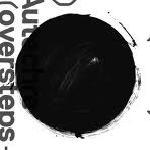
Autechre Oversteps
(Warp Records)
Sean Booth and Rob Brown, better known collaboratively as Autechre, have been making music together for over 20 years now. The pair’s reputation as pioneers of electronic music is relatively uncontested, and rightly so. Frequently challenging and always intriguing, Autechre’s relentless experimentation and manipulation of linear sounds forces us to ask questions about our aural habits and our approach to music in general. Their approach is studious, and in return for their meticulousness, Autechre reward a dedicated listener with complex rhythm patterns and compelling, ambitious compositions.
If that all sounds heavy-handed and inappropriate for your iPod (after all, you just want to listen to a decent hook!) you should probably leave Oversteps alone. Though many associated with the IDM movement of the 1990s disputed the term’s elitist connotations, when it comes to Autechre the term doesn’t seem so ill-advised. This is, after all, extremely intelligent dance music. Oversteps is as much about dance as it is dance music itself, and the bursts of inconsistent rhythms that punctuate the album attest to that more than anything. Just when a beat appears to be steady and you’ve found yourself nodding along, the whole process is deconstructed and you’re left abandoned, clutching the remnants of a graspable measure and wishing for more. But when it doesn’t come you’re not disappointed, you’re fascinated. Why have they done that? Why am I so intent on an established rhythm for my enjoyment? Why don’t more artists ask these kinds of questions?
After the album’s near-silent opening a morphed dubstep beat begins to permeate but, characteristically, it offers little solace from the spastic rhythms of the song’s tense ambience. Elsewhere, 0=0 flirts with an intelligible rhythm, but ultimately eschews the possibility in favour of a disrupted hint at disco rhythms. Anyone familiar with Autechre’s sound will recognise this mixture of confusion and delight when listening to Oversteps. Their belligerent inquiry into electronic music is one of the few recognisable characteristics of their amorphous sound, particularly in their output this decade. Where the album distinguishes itself from the duo’s more recent releases is in its more forthrightly ambient aesthetic and more blatantly emotional charge. Though the glitchy drums and complex textures are still very much evident, there are also moments where a steady (though intricate) beat moves the song along; such as in album highlight Treale and D-Sho Qub. We could, in these moments, be in the presence of Boards of Canada or, perhaps more accurately, in the presence of Autechre circa-Amber era.
This is not to say, of course, that Oversteps has wandered into the realm of accessible. Autechre remain a difficult act to understand and even if you enjoy them, it’s hard to ‘get’ everything they do. The greatest achievement of Oversteps, however, is the feeling that behind the intellectualism of the album, Booth and Brown appear almost gleeful in their experimentalism, and seem to welcome you to ask questions with them. Where many artists would risk creating an icy distance between them and their listener, Autechre have managed to find something distinctly human in the realm of electronica. The majority of the songs are anchored by emotionally evocative motifs that even a casual listen would be rewarded by, and these moments of resolution bring warmth to sparse or bizarre rhythm patterns.
Because of this Oversteps will deservedly achieve a broader listenership than Autechre are accustomed to. Indeed, this is their most assured, confident release to date and though it may not take the place of fan-favourite, it certainly deserves to be considered as the best introduction to Autechre’s oeuvre.
6 April, 2010 - 12:40 — Paul Fowler